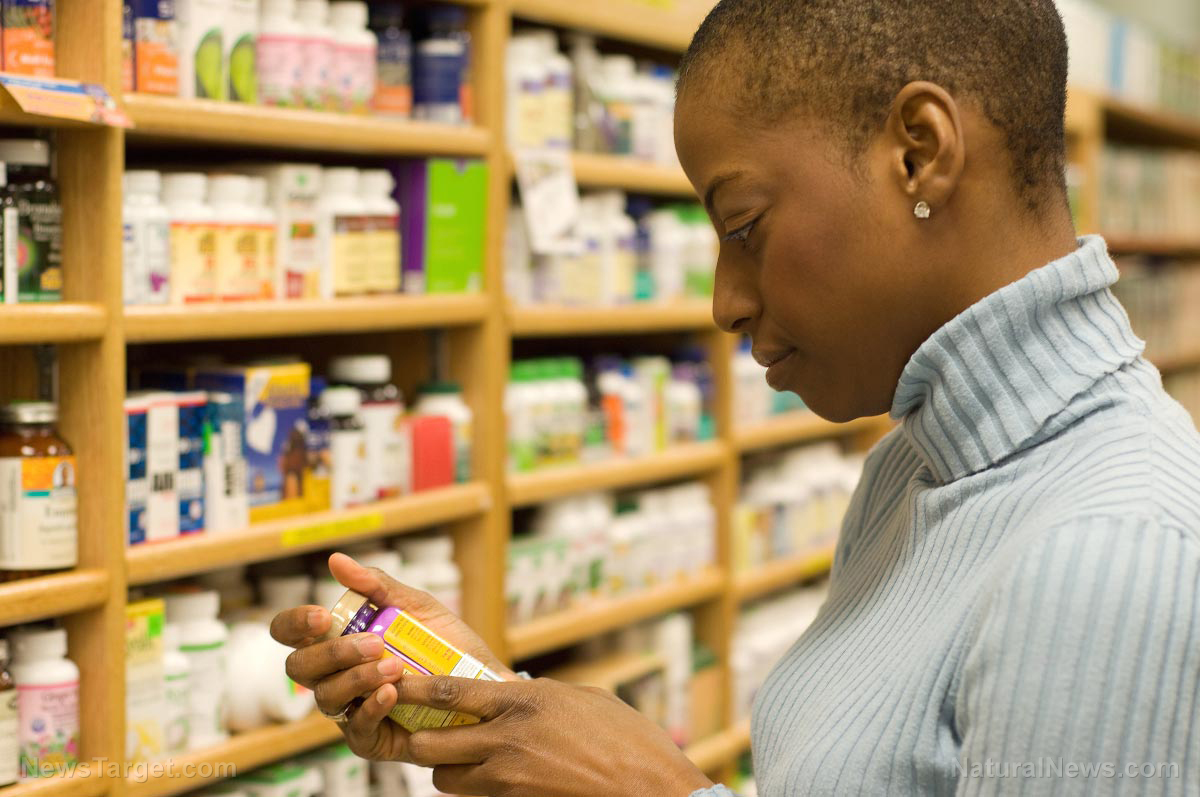
(Article by Jeanne Smits republished from LifeSiteNews.com)
Despite many issues surrounding the data collected for the study, their use and the company that did the statistical work, Surgisphere, both the World Health Organization and France reacted immediately. WHO stopped a study of the drug and it took French Health Minister Olivier Véran only one day after the publication by The Lancet to ask the French High Council for Public Health (HCSP) to decide whether hydroxychloroquine should continue to be allowed to be prescribed in hospitals to COVID-19 patients. HCSP came back with its answer on May 26: all prescriptions in this context should be stopped, it said.
Serious doubts had immediately been cast on the validity of the Lancet study in various countries, leading to the medical journal’s publishing of an “Expression of concern” on June 3.
The World Health Organization has since decided to resume its study. No such thing has happened yet in France where one of the world’s top specialists on infectious diseases, Prof. Didier Raoult, has been targeted by Véran as “irresponsible” and “f…king things up” in repeated attacks against his promoting hydroxychloroquine with azithromycine as a treatment for COVID-19.
Prof. Raoult of Marseille said the Chinese coronavirus’ game was up on February 25
This is just the latest step in a strange sequence of events that had its climax in February, just before the coronavirus pandemic went into full swing in Europe. It was at that point that Pr Didier Raoult of the Marseille special university hospital unit for in infectious diseases, IHU Méditerranée Infection, announced that a Chinese study had shown that 500 mg of hydroxychloroquine taken for 10 days when prescribed as soon as patients were tested positive had “spectacular results” against the virus.
It should have been no surprise, since that same drug had been found to be effective against SARS-CoV-1 (the Severe Acute Respiratory Syndrome linked to a coronavirus outbreak in 2003). In his video dated February 25, Raoult smilingly explained that the new Chinese coronavirus had been beaten, not by a vaccine that will take years to develop, but by a well-known drug that has been prescribed for various conditions for decades, and that COVID-19 “is probably the easiest respiratory infection of all to treat.”
But that is not what happened. Instead, in France Raoult was ridiculed despite his status as a world-famous specialist of infectious disease. And in many countries, treating COVID-19 patients with chloroquine or hydroxychloroquine was discouraged by health authorities, and in many cases was even severely restricted.
Why was hydroxychloroquine severely restricted in many countries?
Why? This is a difficult question to answer if one is prepared to believe that public health authorities and political leaders actually have the public's best interests in mind, be it with the recommendations given to COVID-19 patients, or with their decision to “stop the world” and totally disrupt its economic equilibrium through a lockdown aimed not at isolating those who are contagious, but at keeping healthy people from the streets and preventing them from worshipping, earning their living, travelling, and so on.
The situation and its developments in France, including a number of facts that appear hard to explain as well as the frank hostility with which Prof. Didier Raoult was treated, indeed raise serious questions about the motivations of our civic leaders.
Similar scenarios played out in the US, Germany, Netherlands and elsewhere. In several countries, prescription of hydroxychloroquine is only officially permitted when a stage of severe pulmonary infection has been reached – a point at which the treatment is known not to be effective.
Over-the-counter sales of “safe” HCQ were banned in France in January
When Raoult announced “game over” for the Chinese coronavirus on February 25, it came to public attention that hydroxychloroquine, a safer and better tolerated derivate of chloroquine which is itself a pharmaceutical drug derived from quinine, was no longer available over-the-counter in France since January 13, following a regulation published by delegation for Health Minister Agnès Buzyn by the General Director of Health, Jérôme Salomon.
Hydroxychloroquine (HCQ), known as “Plaquénil” in France, was developed in Germany roughly at the same time as chloroquine in the 1930s and has been efficiently used as an anti-malaria drug since then until resistant forms of malaria appeared. It is currently used to treat lupus and rheumatoid arthritis. Doctors have more than 80 years experience with prescribing this cheap molecule that was never considered to be a dangerous medication – until the beginning of this year.
The surprising inscription of HCQ on the list of poisonous substances, only dispensable with a prescription. only weeks before the coronavirus was identified as having entered into France, led many to wonder whether the move had been deliberate in this context.
It was underscored in particular that Buzyn’s husband, Yves Lévy, until recently head of the INSERM (National Institute for health and medical research) was a member of the French delegation present at the opening of the Wuhan P4 “high security” laboratory that conducts research on dangerous viruses, and that he also had a personal axe to grind against Didier Raoult who was one of the first to complain about a conflict of interests when Buzyn was named Health Minister and became supervisor of the INSERM – and of her own husband. These accusations were brushed aside by the mainstream press.
Questions regarding favoritism for some drug companies and a strange readiness to promote other experimental treatments, such as Remdesivir by the American laboratory Gilead, were also raised. This led, - according to Raoult - to the publication of at least one questionable scientific paper. The treatment would cost about 1 US dollar per day while hydroxychloroquine costs 0.08 US dollars per day. A New England Journal of Medicine study financed by Gilead, said Raoult, only proved that Remdesivir has dangerous side effects that led Gilead to stop treatment of 8 percent of patients involved. In total, 60 percent of patients experienced side effects, and 23 percent serious side effects. No comparative data was available that would have allowed to assess the efficiency of the drug, said Raoult.
Remdesivir was approved for emergency use on hospitalized COVID-19 patients by the American Food and Drug Administration (FDA) on May 1, and Japan also authorized it on May 8, with positive comments and without special warnings.
The FDA authorized emergency use of hydroxychloroquine on hospitalized COVID-19 patients on March 28, though not in combination with azithromycine as recommended by Raoult, and only using products obtained from the Strategic National Stockpile. The FDA’s explanation of the authorization came with a warning that “hydroxychloroquine and chloroquine have not been shown to be safe and effective for treating or preventing COVID-19.”
What was known ahead of the pandemic’s outbreak?
Buzyn – under whose express authority the January 13 regulation restricting sales of HSQ was signed – abruptly left the Health Ministry in mid-March in order (unsuccessfully) to campaign on behalf of the presidential party “La République en Marche” for the post of mayor of Paris, LREM’s previous candidate having been obliged to step down because of a sex tape he had sent a female journalist he was having an affair with: her boyfriend, a Russian contemporary artist, published it on social media.
The fact that Buzyn was forced to step down from her post as Health Minister in the middle of a major health crisis in order to run for the municipal elections also seemed strange.
In a tearful interview with Le Monde on March 16, depressed at leaving her post as Health Minister and worried about municipal elections that were to take place despite the epidemic, only one day before lock-down, Buzyn stated that she had warned President Emmanuel Macron about the dangerousness of the new coronavirus in China as early as January 11… weeks before it became public news.
This was put forward on social media as “proof” that HCQ was restricted because of its possible efficiency against the novel coronavirus.
The same mainstream press ridiculed those suggestions. “Fact-checkers” remarked that the decree bore the date of January 13, but that the publication was the result of a several month long process that had been initiated before the epidemic started in Wuhan, China. In fact, the French health security agency, ANSES, had been asked it to qualify HCQ as a poisonous, prescription-only drug in the course of October 8, 2019, two months before the novel coronavirus made its appearance. It agreed to do so on November 12.
Is this conclusive? While it cannot be affirmed that the COVID-19 episode was known of beforehand or planned ahead, international organizations and superpowers were clearly expecting a coronavirus pandemic to occur sooner or later.
In fact, globalists have said such a pandemic would be a useful step toward their goal. In 2009, Jacques Attali, counselor of nearly all recent French presidents and mentor of president Emmanuel Macron, openly described a worldwide pandemic as an opportunity – thanks to fear of dying – to advance towards world government, with a world police and a world tax system. He published those comments in L’Express, a left of center weekly, on March 3, 2009.
On October 18, “Event 201” took place in New York. The “high-level pandemic exercise” was hosted by the Johns Hopkins Centre for health security in partnership with the World Economic Forum and the Bill and Melinda Gates Foundation. It was of course a fictional exercise, but it showed how these institutions were then promoting a global, supra-national response. The fictional pandemic in the exercise took 65 million lives. COVID-19 is said to have claimed 379,941 victims worldwide as of June 3, with deaths occurring following a characteristic bell-shaped curve that is presently in its descending phase.
Read more at: LifeSiteNews.com
Please contact us for more information.























